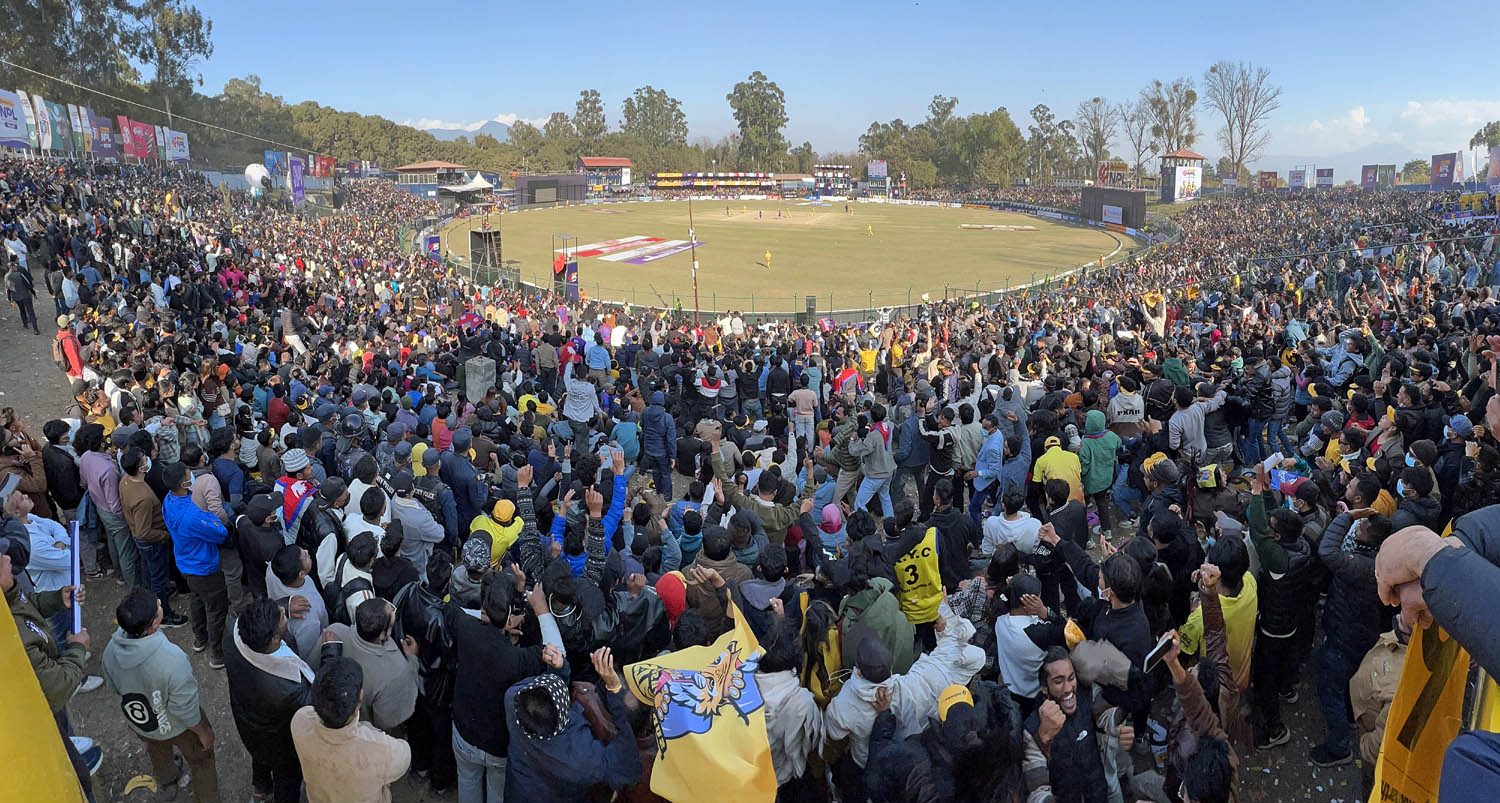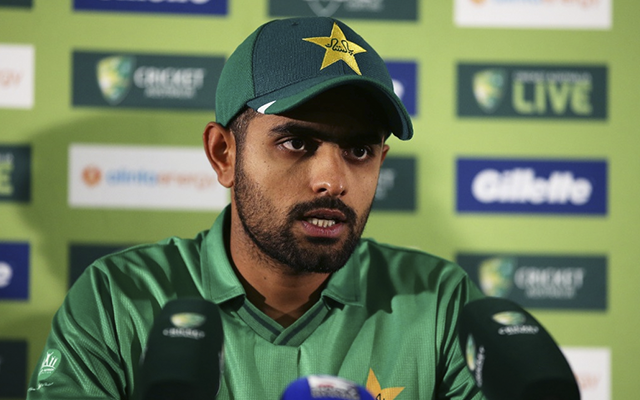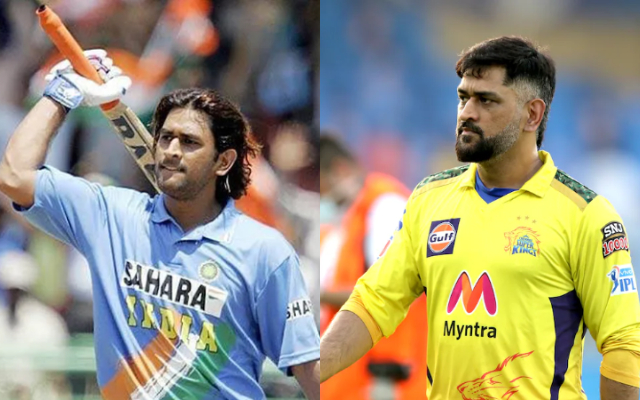CRICKET
Day 1: Rain curtails play, England bag 3 wickets

Day 1 was badly affected by rain as it delayed the toss and start of play by 30 minutes.
The rain was on and off the whole day.
They got a good dry window after the tea break but still, only 46.5 overs were possible today.
The Australian openers Warner and Harris survived a few close chances against the new swinging and bouncing ball.
The pair shared a decent half-century partnership but Stuart Broad came back to get the wicket of Warner once again in his Test career.
Then, Marnus Labuschagne and Marcus Harris put on a solid stand.
The star fast bowler James Anderson came back and sent Harris’s edge to the slip fielder.
Mark Wood then had Marnus caught behind in quick succession.
The pitch has some grass and good bounce but the English bowlers failed to hit the right areas, but they looked pretty decent after the tea break.
Australia 1st innings 126-3
M. Harris 38 Anderson 1-24 D. Warner 30 Wood 1-31 Labuschagne 28 Broad 1-34
Australia won the toss and elected to bat first after the late start due to rain.
The pitch was under covers for a decent amount of time due to rain and that’s why it had a lot of swing and bounce in it.
Warner and Harris played patiently in the start and negotiated the new ball brilliantly which was swinging and bouncing pretty well.
A good start from the Australian openers
The openers provided a good start to the Australian team as Warner and Harris added 51 runs for the first wicket.
The rain allowed only 12.3 overs to be bowled before the lunch break, in which Harris and Warner added 30 runs without losing their wickets.
Anderson and Broad bowled some brilliant deliveries but unfortunately, the luck wasn’t on their side in the start.
After the lunch break, David Warner started and play aggressively as he smashed 6 superb boundaries in that period.
The openers provided an aggressive start and added 40 runs for the first wicket.
This was the second consecutive half-century partnership between Warner and Harris.
Things were going pretty well for Australia but out of nowhere Warner played a loose drive on Stuart Broad’s delivery that cost him his wicket.
Broad bowled a very similar kind of length on which Warner struggled a lot in the previous Ashes.
This was the 13th time, Broad got the wicket of Warner in Test cricket.
After the loss of the first wicket, the number-ranked Test batter Marnus Labuschagne joined Marcus Harris to put up another decent partnership.
Labuschagne and Harris added 60 runs for the second wicket.
Both of them played excellent cricket against the English bowlers.
But after the tea break, the England bowlers bowled at good line and lengths against the batters.
James broke the partnership in the 40th over by dismissing Harris who scored 38 runs.
In the very next over, Labuschagne got caught behind on a back-of-length delivery bowled by Mark Wood.
After losing two wickets in quick succession, Smith and Khawaja were left in an awkward situation in which they had to negotiate the last hour before stumps.
Luckily, the rain reduced that hour into just 6 overs.
Australia ended the day on a score of 126-3 with Smith and Khawaja still on the crease.
BIG NEWS
Nepal Premier League Becomes a Watershed Moment for Nepali Cricket

The NPL has become a watershed moment for Nepali cricket, elevating the sport to new heights. With its success, the league has brought national and international attention to Nepali cricket, attracting a broader fan base and better sponsorships.
This landmark event showcases the immense talent present in Nepal and provides a platform for local players to shine. The league has paved the way for a new generation of cricketers to gain recognition and advance their careers in the sport.
The NPL has also given Nepali cricket more global exposure. International players joining the league help raise the level of competition, further inspiring the local players. The league’s popularity continues to grow as it evolves and promises to be a cornerstone of Nepali cricket in the years to come.
As the league progresses, it is expected to inspire future stars and increase the overall development of cricket in Nepal. Fans eagerly follow every match, enjoying the thrilling action and supporting their favorite players and teams.
In conclusion, the Nepal Premier League has transformed Nepali cricket, setting the stage for future growth. This momentous development will surely lead to even greater success for Nepali cricket on the international stage.
The NPL has also sparked interest in domestic leagues across emerging cricket nations. It serves as a model for other countries to develop their cricketing infrastructure and provide young talent. As the NPL continues to grow, it is expected to play a vital role in shaping the future of Nepali cricket.
Fans have embraced the tournament, creating a sense of national pride. The NPL’s rise reflects the growing global interest in domestic cricket leagues and their role in nurturing future talent. It’s a significant milestone for Nepali cricket, ensuring that the sport will continue to evolve in the coming years.
BGT
Simon Katich Criticizes George Bailey’s Call to Axe Nathan McSweeney from Australian Team

Simon Katich has sharply criticized George Bailey’s decision to drop Nathan McSweeney from the Australian team. Simon Katich believes this call was a poor decision, especially after McSweeney’s consistent performance. Bailey’s choice has sparked discussions about the selection process and the reasoning behind it.
McSweeney’s exclusion has raised eyebrows, with many questioning why a player with such promise was dropped. Katich, in particular, feels that Bailey’s decision to axe McSweeney is questionable, especially when compared to the struggles of other top-order batters. Both teams in the recent series have faced challenges with their top-order batting, but the Australian selectors decided to make this change.
Katich’s comments reflect growing concerns about the selection strategy and the impact of dropping McSweeney. He pointed out that many players have struggled with their form, yet McSweeney was chosen to be left out. This, Katich argues, highlights the inconsistency in the decision-making process.
Top-order batters in both teams have faced difficulties, with neither side managing to produce consistent runs. Despite these struggles, the decision to remove McSweeney has left fans and experts questioning the rationale behind the move. Some believe that dropping McSweeney might have been premature, given the form of other players.
Katich’s criticism brings attention to the broader issue of player selections in international cricket. As teams prepare for future series, these decisions are likely to influence the direction of Australian cricket. The focus now shifts to how Bailey and the selectors will handle similar challenges in upcoming matches.
The debate continues, with many calling for more transparent and consistent decision-making regarding player selections in international cricket.
BGT
Steve Smith and Travis Head Address BCCI’s Influence in Cricket

Steve Smith recently commented on BCCI’s influence in cricket, sparking debates about its significant role in global governance. During a media interaction, Smith remarked that the International Cricket Council (ICC) appears less powerful than the Board of Control for Cricket in India (BCCI). This statement drew attention, prompting Smith to clarify his intentions quickly.
Smith acknowledged that the BCCI holds a dominant position in cricket due to its financial and organizational contributions. He pointed out how the Indian board influences key decisions that shape the sport. However, Smith softened his tone, emphasizing that his comments were not meant as criticism of either the ICC or the BCCI.
Travis Head, Smith’s Australian teammate, also addressed BCCI’s influence in cricket. Head humorously referred to the Indian board as “rulers,” recognizing its ability to set global standards in cricket. He highlighted the board’s pivotal role in defining policies and establishing benchmarks for the sport.
These remarks have reignited discussions about power dynamics in international cricket. Critics argue that the BCCI’s financial clout often overshadows smaller cricketing nations. They believe this imbalance can hinder fair representation in decision-making. On the other hand, supporters emphasize the BCCI’s critical role in expanding cricket’s global reach and popularity.
As India hosts the ICC Cricket World Cup, the spotlight remains on the BCCI’s influence in cricket. The board’s central role in shaping schedules, policies, and trends continues to drive conversations about equity in the sport. Smith and Head’s remarks reflect ongoing concerns about maintaining fairness and inclusivity in global cricket governance.
Their comments underscore the need for balanced representation to ensure a fair future for cricket.
-

 FILMY1 year ago
FILMY1 year agoWATCH: Tripti Dimri shocks audiences with daring nude sequence in Ranbir Kapoor starrer ‘Animal’
-

 BIG NEWS2 years ago
BIG NEWS2 years agoRiva Arora, aged 12, romances with Karan Kundrra in viral video
-

 BIG NEWS2 years ago
BIG NEWS2 years agoMeet the sexiest female golfer ever!
-

 LATEST2 years ago
LATEST2 years agoThe sexiest tennis star on the planet. Do you agree?
-

 CRICKET1 year ago
CRICKET1 year ago‘Bloody dump captain’ – Former Pakistan cricketer lashes out at Babar Azam and staff for mismanagement of fast bowlers in Asia Cup 2023
-

 FILMY1 year ago
FILMY1 year agoWATCH: After Tripti Dimri, Rashmika Mandanna’s intimate scene with Ranbir Kapoor in ‘Animal’ goes viral on internet
-

 CRICKET1 year ago
CRICKET1 year agoTop 10 hairstyle of MS Dhoni from 2007 to 2023
-

 FILMY1 year ago
FILMY1 year agoDid you know Simi Garewal dated India’s iconic industrialist Ratan Tata? Know more about this










